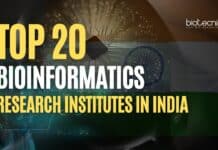BBSRC and the government of India’s Department of Biotechnology wish to encourage multi-institutional collaborative applications between UK and Indian researchers to undertake high quality three-year projects aimed at increasing the productivity, resilience, sustainability and quality of pulses or oilseeds grown for food or feed in India. The call aims to use genomic approaches to accelerate varietal improvement by understanding and exploiting traits to enhance yield potential, increase tolerance to climatic stresses or poor-quality soils, or counter pests or diseases. The funders will support the development and exploitation of new genomic and associated bioinformatic resources, but existing resources should also be used where relevant, particularly for comparative studies.
Call status : Open
Application deadline : 24 October 2017, 16:00 BST/15:00 GMT
Introduction
BBSRC and the Department of Biotechnology (DBT) announce a call for research into pulses and oilseeds, supported by the Newton-Bhabha Fund and the government of India.
Pulses and oilseeds are important crops in India and the UK. Pulses are relatively under-used crops in the UK, but are a major source of dietary protein in India. Oilseeds are grown in India and the UK, and are valuable as a source of oil for a variety of uses, as well as being useful as
a source of animal feed. This call seeks collaborative projects to develop and exploit genomic and bioinformatic resources to aid the development of improved varieties of these crops for India. Institutions with diverse expertise should work together on a common objective to develop improved varieties of a target crop. These projects will strengthen scientific collaboration between the UK and India and bring together research communities with a wide range of expertise to work on common goals relevant to Indian agriculture.Information on this page complements our grants guide (see downloads) which should be read alongside it.
Applications are invited for multi-institutional collaborative research projects involving scientists in the UK and India, of up to three years in duration. Individual researchers may be involved in multiple proposals.
Up to £3.5 million is available from BBSRC to support the UK components of this research and this is matched by DBT’s support for the Indian components. It is expected that projects funded through this initiative will bring together multiple UK and Indian research groups. Industrial partners can be involved in the research as project partners but are not eligible to receive funding from BBSRC.
Collaborative research projects
BBSRC and DBT seek to bring research groups in the UK and India together to build on their combined strengths and work on projects aimed at increasing productivity of these crops in India.
Projects should build new links or strengthen existing links between India and the UK, and demonstrate how research in the two countries would be integrated. The output from the project should be the delivery of exciting new research capable of leading to increased pulse or oilseed production in India, and decreased reliance on imports of these crops from other countries. In addition, research collaborations between the two countries should be strengthened as a result of the projects.
Please note that the funding agencies will not be able to assist applicants in identifying potential collaborators for this call.
Newton Fund and ODA compliance
This call forms part of BBSRC’s Newton Fund activities and therefore requires projects to address Overseas Development Assistance (ODA) objectives alongside their scientific aims.
The Newton Fund was set up by the UK government in 2014 to build research and innovation partnerships with 16 partner countries to support their economic development and welfare, and to develop their research and innovation capacity for long-term sustainable growth. The total budgeted UK investment for the Newton Fund is £735 million from 2014 to 2021, and partner countries provide matched resources within the Fund.
The Fund forms part of the UK’s ODA commitment which is monitored by the Organisation for Economic Cooperation and Development (OECD). ODA funded activity focuses on outcomes that promote the long-term sustainable growth of countries on the OECD Development Assistance Committee list. Newton Fund countries represent a sub-set of this list.
More information can be found on the Newton Fund website and RCUK guidance on ODA compliance (see external links).
Eligibility
UK participants – Standard BBSRC managed mode eligibility conditions apply to this call. All UK applicants must be eligible to receive research funding from BBSRC as Principal/Co-Investigator; see our grants guide (see downloads).
Indian participants – Applicants should ensure that Indian participants fulfil the eligibility requirements for DBT funding. For this call, DBT will fund eligible researchers in Indian universities and eligible autonomous institutions, institutes of the Indian Council of Agricultural Research, and the CGIAR’s International Crops Research Institute for the Semi-Arid Tropics. Indian applicants should confirm their eligibility to apply with Dr Sanjay Kalia at DBT: [email protected]
Principal Investigators are responsible for ensuring that they, and any Co-Investigators included on the application, are eligible. Applications involving any ineligible applicants (UK or India) will result in the whole application being rejected.
The following BBSRC schemes will not apply to this call: New Investigator; Industrial Partnership Awards and Industrial LINK. BBSRC will not fund studentships as part of this call.
How to apply
The lead UK Principal Investigator should submit a single joint application to BBSRC on behalf of all participants using the Je-S system (see external links).
Applications may involve researchers from multiple eligible UK institutions, but should be submitted as a single Je-S application submitted by the organisation of the lead UK Principal Investigator. If successful, the lead organisation would be the recipient of the UK component of the award, and would be responsible for managing and distributing funds to other participating UK institutions in accordance with the terms and conditions of the award. Funding for the Indian component of the collaboration will be paid by DBT to the Indian partner institution(s).
The deadline for applications is 24 October 2017, 16:00 BST/15:00 GMT.
Application downloads
- Pulses and Oilseeds Research Initiative: call for collaborative research projects – Guidance for applicants (PDF 271KB)
- Newton-Bhabha Fund UK-India Pulses and Oilseeds Research Initiative: Applicant list (DOCX 99KB)
- Newton-Bhabha Fund UK-India Pulses and Oilseeds Research Initiative: Applicant list (ODT 78KB)
- UK-India Newton-Bhabha Fund joint call on pulses and oilseeds: Budget format for Indian academic partners (DOCX 16KB)
- UK-India Newton-Bhabha Fund joint call on pulses and oilseeds: Budget format for Indian academic partners (ODT 9KB)
Timetable
| Stage | Date |
|---|---|
| Call opens | 19 July 2017 |
| Application deadline | 24 October 2017, 16:00 BST/15:00 GMT |
| Joint panel to agree outcome | February/March 2018 |
| Projects to commence | 1 July 2018 |








































